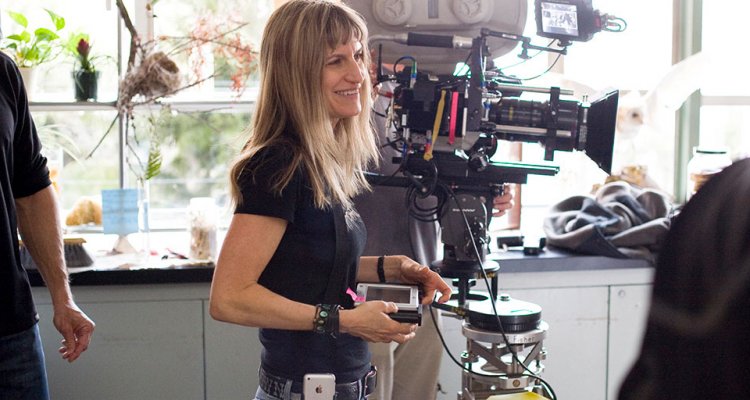We are a full decade removed from the release of the massive blockbuster that launched a franchise (and an entire genre of YA films), “Twilight.” And in a new interview, the woman behind that film, director Catherine Hardwicke, explains why she thinks she was hired, her struggles to make the film diverse, and why she’s since been labeled as “difficult.”
Hardwicke spoke to the Daily Beast in a new, very candid, interview. And while most of the talk centered on the development and impact of “Twilight,” there was a great deal of discussion on what it’s like being a female director (especially 10 years ago) and why she thinks she was never brought back to the franchise.
When it was brought up that “Twilight” was a surprise hit and the studio had no clue the heights the franchise would reach at the box office, Hardwicke laughs that’s the only reason she was hired in the first place, “Why do you think I got the job? Why do you think they hired a female director? If they thought it was going to be a big blockbuster, they wouldn’t have ever even hired me, because no woman had ever been hired to do something in the blockbuster category.”
Speaking more about the “Twilight” studio’s (as well as other major studios) reluctance to hire females to helm these female-fronted stories, she said, “Even after the success of the first one, all the ‘Twilights,’ the next four, all directed by guys. The next ‘Divergents,’ all directed by guys. All the ‘Hunger Games,’ directed by men. They still didn’t want to take the risk again.”
Nevertheless, she’s proud of her work on “Twilight,” even though casting the film was a bit of a struggle. No, she didn’t worry about casting Robert Pattinson or Kristen Stewart. Her struggles were regarding clashing with author Stephenie Meyer about the diversity with the rest of the characters.
Hardwick references Meyer’s Mormon, sheltered background and said, “So she probably just didn’t see the world that way. And I was like oh my God, I want the vampires, I want them all—Alice, I wanted her to be Japanese! I had all these ideas. And she just could not accept the Cullens to be more diverse, because she had really seen them in her mind, she knew who each character was representing in a way, a personal friend or a relative or something.”
She credits her one, major diversity win casting Edi Gathegi as the villain Laurent due to a semantics issue, “The only reason that came through was he was described as having olive skin. And I said, there are black olives out there! Then she was open to the students in [Bella’s] peer group being other ethnicities, so we got Christian Serratos and Justin Chon, so we were able to open it up a little bit.”
Ultimately, we know how the whole situation played out. After a massive, surprising opening weekend at the box office, the studio knew there was potential for a global franchise. But the filmmaker thinks that she was never given the proper credit by those who put her in the gig.
She describes the scene when she went to the studio after the film’s massive opening, “When I went in I saw that there were massive bouquets and balloons and bottles of wine, and crazy gifts sent to them by all the distributors around the world or whoever, all their friends.”
Hardwicke continues, “So I actually had it in my mind, wow, this is a pretty unprecedented success. I had heard these rumors that when a director does something like this they give them a car, they give them a two-picture deal or something like that. They give them an office and ask them what they want to do after this. And then I got a mini cupcake that day. I was like oh, OK, cool—coming in here, I’m sort of working for free, doing this online stuff, and that was what I was offered: a mini cupcake.”
And her struggles continued after “Twilight.” Hardwicke would come across scripts and projects that she was really excited about working on, but her status as a female director, combined with her reputation of being “difficult,” led to rejections.
She explains, “…they wouldn’t even let me have an interview. They would not even meet me. They just flat-out said, ‘no, we think a guy is going to direct this movie.’ So the reality hits you pretty hard, pretty fast.”
Hardwick again references her reputation, which she admits has some basis in reality, but is born from passion for her work, “Yet they’re praising all the male directors I’ve worked for for being passionate and visionary and sticking to their guns, fighting for what they want. But a woman is emotional, difficult, bitchy, whatever. I didn’t know those code words and I didn’t know they were used pervasively, and so I just took them personally.”
Since her success, the filmmaker has dabbled in TV and films, but never reaching the same heights she did with “Twilight.”

